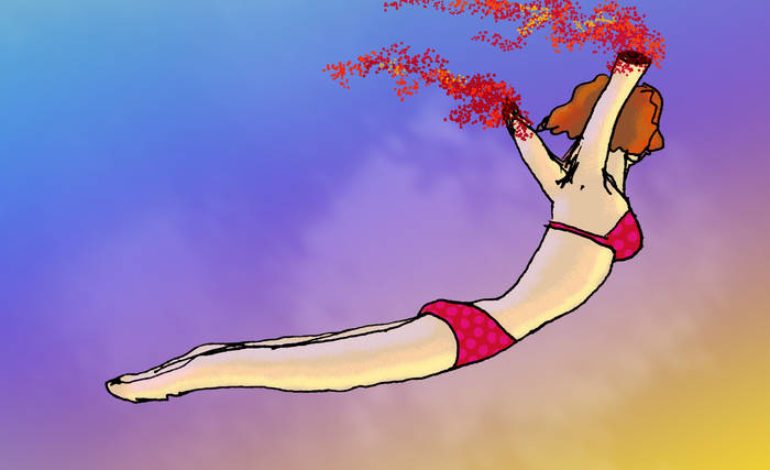

Danceable rock for dark times
Juliana Hatfield aims to create a space in which the morbid political climate comes to the fore in her 19th solo album, Blood. Describing state-sanctioned violence, corporate greed and a milieu of other issues, Hatfield stakes claim in describing the current situation that people are faced with. Contradictory to what might be presumed, however, these songs largely have a positive, lovely beat to them that makes it hard to enjoy. Its nostalgic sound draws one in before leaving a residue of anxiety about the very real present.
“The Shame Of Love” has the late ’90s/early ’00s groove with large creative liberties that makes it seem dated. The instrumentals stop and start, phasing in and out, in a push-and-pull type narrative. It is a by-the-book rock ballad, ending with a drawn-out guitar solo. Even with it being one of the two songs not written by Hatfield on the album, she puts significant life into it, professing the vulnerability that comes with loving someone. It fits in perfectly into the themes she draws from, making it blend seamlessly into her other songs, even despite their difference.
If one were to connect the opening track to more of a rock ballad, “Gorgon” has interesting danceability. Never delving too far into distortion, the timeless sound insists on connecting the listeners. Claps and repetitive piano melodies bring it to life. The underlying drumline and collapse into riffs are reminiscent of the production work present in Daft Punk’s Discovery.
It would be misleading to claim that there is not an unsettling feeling when listening to Blood. While the album sonically does not seem so at the surface, there are deep undercurrents of frustration of the current political climate. This can be seen in “Nightmary,” which describes how Hatfield finds herself in a nightmare where the “whole world is controlled by fascist blood-sucking thugs.” The deep sorrow of conspiracy theories running rampant, as well as the use of excessive force by legal authorities, all take precedent in the song that has a nearly pop melody. It is an irony that the artist largely plays into throughout the album.
An exception to this could be the distorted grunge sound of “Had A Dream” that builds up an oppressive sound while describing the violence Hatfield bears witness in a dream, and the violence that proceeds is extreme. Pulling a man apart by four horses—what she describes as an “American dream”—leaves a very unsettling feeling beyond the loud instrumentals. It stands out as a dismal look into the double entendre of “an American dream/ The American Dream,” which relies on the brutalization of others. The sense of violence greatly disturbs Hatfield, leading her to create a fascinating break from the rest of the album.
The ending track, “Torture,” bookends the album with more rock balladry. Hatfield’s vocals are truly beautiful here. Describing this torturous waiting game she is playing, she faces a sort of purge. While the song is described as “torture,” it is quite literally the most peaceful song on the album. Succumbing to her soul gone out-of-control, there is a morbid note on how the current climate is demystifying people from realities. The bombardment of violence throughout the album is not unlike the news people see today. It is a smart, succinct ending to the album’s themes on modern hopelessness.
Largely, the album is cohesive in its sound and themes without seeming repetitive. It dives into the current work without largely seeming to be literal, while its frustration never loses its musicality and doesn’t delve so deeply into it that it loses its fun. It is an important addition to Hatfield’s large body of work. A blend of nostalgia and present realities blend beautifully in Blood.
